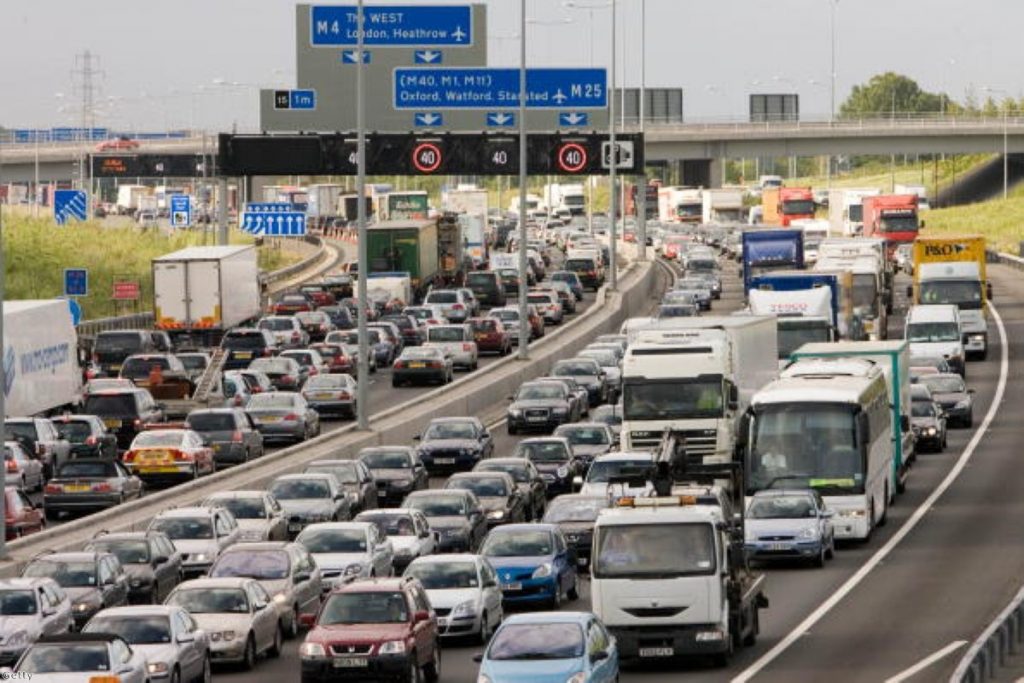Comment: Labour must reject this tunnel-vision on roads
By Christian Wolmar
The proposal by Boris Johnson to build a series of tunnels under London to accommodate main roads is just the latest in a series of fanciful futuristic concepts that do not contribute meaningfully to the transport debate. Johnson's latest scheme, like his airport plan, falls at the first hurdle. The arguments against it are various and compelling. Money – a mere £30bn – is the most obvious. Suggestions that this could be raised from the private sector are simply laughable.
There are more fundamental political and environmental arguments as well. Transport policy has been moving in the other direction for years. Plans to build urban motorways through the heart of cities as was widely proposed – and sometimes carried out – in the 1970s have been largely rejected. Instead, we now have bus lanes, cycle paths, restrictions on parking and even the congestion charge. These are all attempts to limit the number of cars coming into city centres since it is recognised that allowing motor vehicles free rein in built up areas is a recipe for congestion and environmental degradation.
Mainstream political thought in transport has moved to a widespread acknowledgement that providing extra space for cars in cities – whether underground or not – is counterproductive. The sheer economics dictates that: the externalities created by every single car on the road are greater – and consequently more damaging – than the benefits to the individual user.


Although the policy has been covert, the failure to accommodate extra traffic has been an effective and successful deterrent to growth of car use, which indeed has barely increased in the past decade. The constant talk of needing more roads to boost economic growth is, therefore, highly dishonest.
This argument is about more than economics. As I have argued in my mayoral campaign, successful cities are now recognising that to become attractive, they need to reallocate space away from the car and towards more sustainable uses. Times Square in New York has enjoyed a renaissance thanks to a pedestrianisation scheme. Clearly Oxford Street, the most polluted street in the UK, needs a similar treatment.

In fact many of the objections to the tunnels also apply to the newly proposed road schemes in London and elsewhere in the UK. The project that is most advanced in the capital, the plan for a tunnel under the Thames at Silvertown just east of the Blackwall tunnel, raises many of the same issues. It will generate much increased traffic, clogging up local streets and leading to pressure to provide more road space. It has been widely shown in academic studies that newly-created urban road space fills up remarkably quickly, leaving motorists no better off.
This applies on the national scale. George Osborne has promised to spend nearly £10bn on road schemes across the UK in the next five years, many of which will be committed to the Highways Agency in a plan that under the new Infrastructure Act will be difficult for a future government to unravel.
This is a terrible mistake. Spending this amount on new and widened roads suggests that the government wants to encourage more vehicles onto the roads, a reversal of a long established bi-partisan policy, of squeezing out demand through simply not providing more capacity. The old days of much of the postwar period of predict and provide for road travel simply led to growth that is unsustainable not only environmentally but also economically. Politically, too, there is likely to be a backlash as the veteran transport consultant Jim Steer wrote recently in Transport Times: 'A highways programme that shows a balanced response to users’ needs – not just motorists' – has a much better chance of public acceptability'.
Boris and his daft tunnels are part of that old-fashioned thinking and Labour needs to openly distinguish itself from it. The roads budget, is one area ripe for cuts that will not impact on people's lives nor, indeed, on the economy.
Christian Wolmar is Britain's leading transport commentator and is seeking selection as Labour's candidate for the 2016 London mayoral election. See www.wolmarforlondon.co.uk or follow @wolmarforondon
The opinions in Politics.co.uk's Comment and Analysis section are those of the author and are no reflection of the views of the website or its owners.












